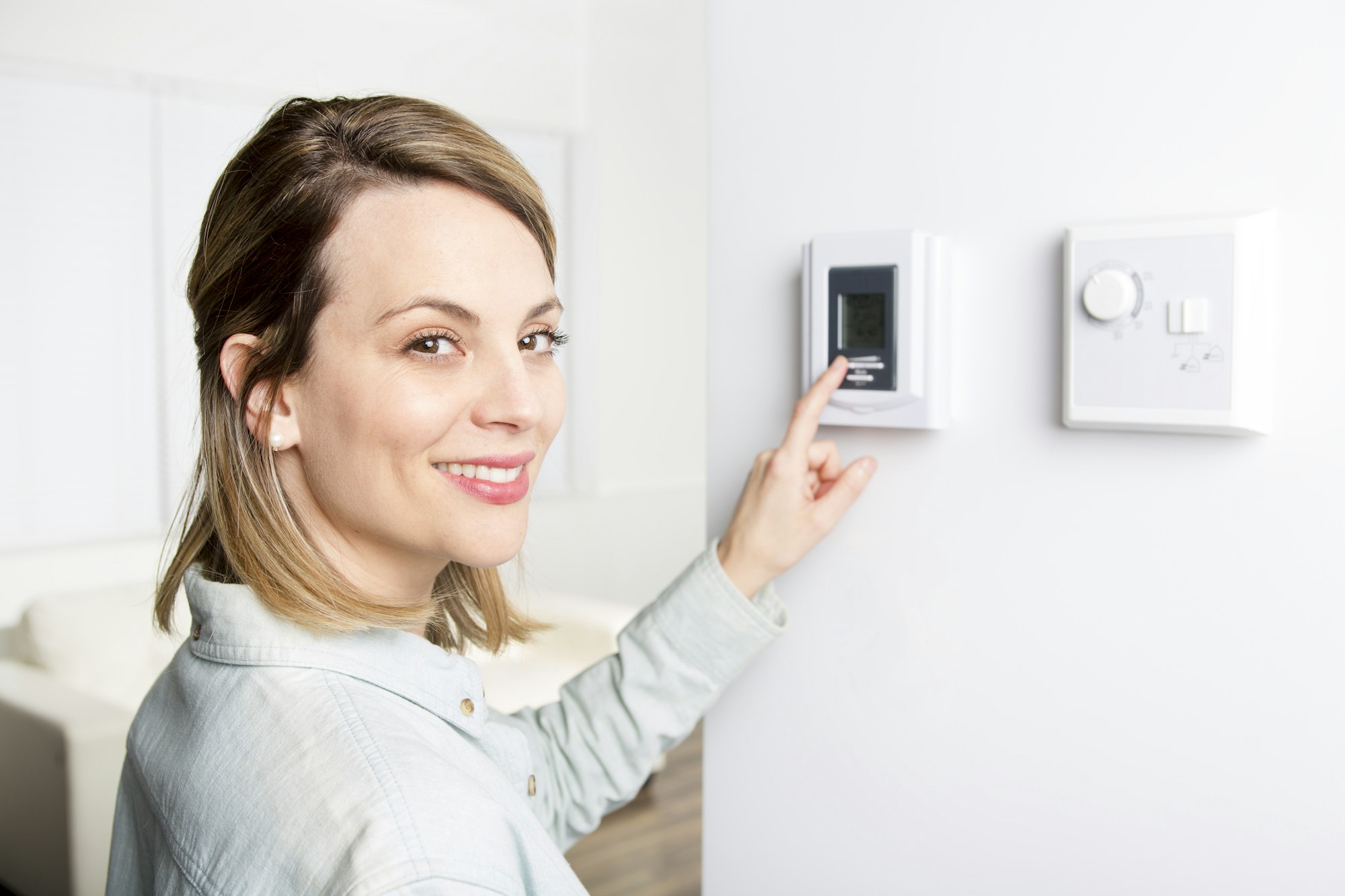Heating Your Home
The advantages of natural gas heat over electric are simple.

- You can select the type and size of system that best suits your needs
- You can stay warmer while spending less.
- And, you can rest assured with natural gas you’re using a clean and domestically abundant, energy efficient source that is fueling America's future.
Now, Okaloosa Gas District offers full-service heating and cooling services to our customers! Even if you have electric air conditioning, you can call Okaloosa Gas Districts approved Heating and Cooling contractors to assist you on evaluating your current system, service, or replace both your air conditioning and natural gas heating systems. Let Okaloosa Gas and our Preferred Service Providers assist you with one-stop sales, installation and service! At Okaloosa Gas we have more than 70 years of outstanding service to the Emerald Coast communities.
Did you know that air from a natural gas furnace is up to 25 degrees warmer than air from an electric heat pump. So your family feels warmer faster. If you invest in an electric heat pump, you will need a secondary heating system whenever the temperature drops below the 25-30 degree range. Natural gas furnaces are reliable even in the coldest weather.
Natural gas heating systems are built to last. The average life of a natural gas heating system is typically longer than the average life of an electric heat pump. Year after year, you can depend on the comfort and efficiency of natural gas heat.
Natural gas fireplaces are another great source of supplemental heat for your home. Visit our Fireplace Appliance page to learn more.
Natural gas heating offers these great benefits:
- Up to 25 degree warmer air than an electric heat pump
- Warms more quickly and efficiently
- Up to 98% energy efficient
Types of Heating Systems
-
Forced Air Systems
The most common furnace is a forced-air central heating system that uses a natural gas burner to heat air. Cool air is drawn into the system, moved into a heat exchanger where it is warmed by the gas burner and then circulated by a blower or fan through the home's ductwork. A forced air system can also include items such as electronic air filters, electric cooling equipment, and a humidifier or dehumidifier .The combustion of natural gas produces byproducts of water vapor and carbon dioxide, which are the same elements exhaled when people breathe. These flue gases must be vented to the outdoors. Wall vents can be used for mid- and high-efficiency natural gas forced-air furnaces, thus eliminating the need for the standard chimney and/or chimney liner.
-
Radiant Water-Based or Hydronic Heating Systems
Hydronic or hot water systems have a gas boiler that creates steam or hot water, which is then circulated through the home in pipes or tubes. These heating systems can incorporate radiators, radiant floor systems, or baseboard units. Boilers or hydronic systems use the same type of venting as forced air systems.
-
Combination Water Heating & Space Heating Systems
Combination systems are designed primarily for use as a forced air heating system, but can also be adapted for some hydronic baseboard systems. A natural gas burner heats water to be used and stores it in a tank, just like a regular water heater. To provide space heating, a pump sends some of the hot water through a heated metal coil. A fan blows air over the heated coil and through the ducts in the home.
-
Space Heaters
Natural gas space heaters are a good choice for rooms that aren’t used often, for areas of the home that need a heating boost and for room additions. These compact, energy-efficient units can be mounted on a wall, contained in baseboard units or place like a fireplace or stove unit. They are sized to heat just one room or several. They are often directly vented to the outside using conventional chimneys or flue vents, but unvented models are also available.A radiant room heater has a glowing panel that warms people and surfaces in its direct path. A convective heater warms the air in the room. Some convective heaters use the natural circulation created in the room to distribute heated air and others use a small fan or blower to distribute the warm air.
Another great source for supplemental heat is a natural gas fireplace or gas stove.
Preferred Service Providers
Call one of our preferred service providers for a FREE evaluation of your heating and cooling system!
Andrews Cooling & Heating
850-862-5253
Ohana Heating and Air
850-612-9047
McCullough Air Conditioning
850-678-2797
We Care Heating and Air
850-820-6710

